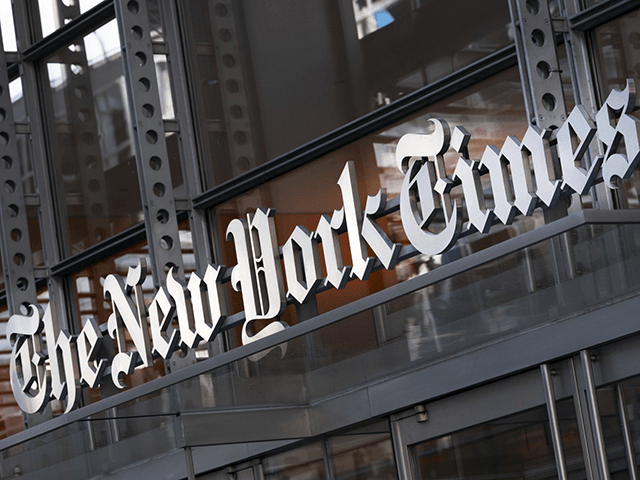Even though the far-left New York Times has given a platform to diversity-obsessed woke scolds, the “paper of record” has just tapped Joe Kahn to be its executive editor — a rich, white Harvard grad from an upper-crust family.
Kahn will assume his new position in June and will follow Dean Baquet, the first black executive editor of the New York Times, who led the paper through the Trump years and who helped spark the #MeToo phenomenon with the paper’s expose of Hollywood mogul Harvey Weinstein. According to New York Magazine, Kahn will be quite the contrast to Baquet, whose working career began with “mopping the floors of his family’s New Orleans restaurant.” The son of Leo Kahn, founder of the office-supply retail chain Staples, Joe Kahn may actually be the first editor in the paper’s history to have more wealth than the “Sulzberger who owns it,” as noted by reporter Shawn McCreesh.
“Kahn, a fabulously wealthy Bostonian, is, arguably, a throwback to a more patrician leader of the paper,” noted the mag. “On the surface, he seems more akin to Bill Keller, the son of a Chevron CEO, who ran the Times for eight years between Raines and Abramson.”
Former New York Times journalist Gay Talese’s eyes reportedly “grew wide” upon hearing of Joe Kahn’s wealth as he wondered aloud if he is perhaps wealthier than company chairman A.G. Sulzberger. In its profile of Kahn, New York Magazine highlighted his luxurious surroundings, from his Fifth Avenue apartment to his patronage of the Metropolitan Opera:
The apartment building he lives in on lower Fifth Avenue is said to have once been inhabited by Marlon Brando. He and his wife, Shannon, who previously worked for the World Bank, send their two sons to Collegiate.
Kahn is not flashy, but he does have a taste for the finer things. He is a familiar face at opening night of the Metropolitan Opera. He is an oenophile with a particular fondness for Burgundy and is part of a wine consortium that includes the billionaire Joseph Bae.
Kahn was an investor in Monkey Bar, a clubby restaurant owned by Air Mail editor Graydon Carter. “I like Joe immensely,” Carter tells me. “He’s got a quiet wit and intelligence that you might miss on first meeting.” The two men share an architect in Basil Walter.
Aside from his opulent background, the larger (and thoroughly more important) question on everyone’s minds is whether or not Kahn will champion the company’s woke scold minority or usher in a new era of tolerant discourse. While the verdict may remain in doubt on that, several Times staffers expressed optimism that Kahn will strike an even balance.
“There is a sense — and this makes a lot of people very happy — that he is much less willing to indulge the complaining and the constant cries of activism and that he is somebody who has expressed little patience for the newsroom culture-war eruptions that have been such a distraction for us lately,” one staffer told the magazine.
“The question is whether or not he feels confident to act on those impulses,” they added.
When asked, Kahn committed to neither side and only reiterated his devotion to “the independent mission of the New York Times.”
“It doesn’t mean that we’re going to react instantly to any concern that anybody has and immediately agree, because there’s some journalistic values of the place that mean sometimes we’re going to have to say ‘no’ to colleagues,” he said.
Regarding the controversy over the paper’s decision to retract Sen. Tom Cotton’s (R-AR) op-ed arguing for the military to quell Black Lives Matter riots, Kahn kept his response diplomatic, only saying that the fallout reflected how the Times needed to “get serious about looking internally at its diversity, equity, and inclusion policies, and what kind of workplace we had, and to what extent we had begun to make a significant investment in recruiting a newer, more diverse generation of journalists all across the organization.”
While Kahn rejected the idea of “perfect neutrality” or playing to “both sides,” he said the paper should “ground its journalism in deep reporting, open-mindedness, curiosity, and empathy.”
“There is no such thing as perfect neutrality, and defaulting to ‘both sides’ framing on divisive issues can be insufficient and misleading,” he said. “But the journalistic process needs to be objective and transparent, and we need to challenge ourselves and our readers to understand all the facts and explore a wider range of perspectives.”

COMMENTS
Please let us know if you're having issues with commenting.